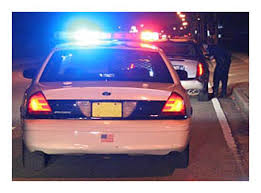Time Matters: Determining When Questioning Becomes Arrest In Roadside Stops
 Detention and Miranda Rights
Detention and Miranda Rights
Submitted by New Jersey Criminal Lawyer, Jeffrey Hark
This blog deals with issues of what constitutes a detention in which your Miranda rights must be read. The case is an appeal of the denial of a defendant’s motion to suppress evidence in State v. Hamb, decided July 25, 2014 by the Superior Court of NJ, Appellate Division. The basic facts of the case are that a detective was inside a Wawa store when he noticed a man he knew from past experience to be a narcotics dealer interacting with the defendant and then saw them both briefly enter the restroom after signaling each other. The defendant had been holding a cup of coffee at the time which became evidence later. The detective took it upon himself to follow the defendant as he left the Wawa and turned his vehicle into a parking lot without using a turn signal. He informed the defendant of his traffic violation and asked for his driving credentials. The defendant could not produce a driver’s license and the registration was for another vehicle. Because the databases were “down” some additional questions were asked in order to corroborate his identity. When the detective informed the defendant that the registration was wrong the defendant became visibly nervous (according to the detective’s account). The defendant then confessed that he had a handgun in the glove compartment. He was arrested and three more officers arrived (according to the police report; the defendant contends the officers were always present). He was taken back to the station, read his Miranda rights and confessed a second time to having the gun. A search warrant was issued and the weapon was found along with a coffee cup containing CDS.
Timing of Miranda Rights and “de facto” Arrests
The defendant contends that the evidence should be suppressed because he was under “de facto” arrest and his Miranda rights should have been read sooner so that he was not pressured to confess to criminal activity without first being read his rights. Had the defendant felt he was free to leave and not under a constructive arrest perhaps he would never have blurted out that he had a weapon. Arrest creates a power dynamic between police and a defendant that is intimidating and it is for this very reason the Miranda rights are read in the first place. He also contends that the police wrongfully suggested he had committed a crime at the Wawa and that they used a show-of-force. During a traffic investigation an officer is allowed to question an individual about things unrelated to the traffic violation and the show-of-force argument is invalid. However the time frame in which the questioning took place which the defendant claims lasted around forty minutes could have triggered the defendant’s Miranda rights and both the detective and the police report itself are unclear. For this reason the Appellate Division retains jurisdiction but remands the case back to the trial court to determine this question of fact.
Confession Under “de facto” Arrest
Put simply the reason this case was remanded is to determine which of two possible scenarios occurred. In scenario one a detective approaches a vehicle for a routine traffic violation and within only a few minutes the defendant blurts out that he has a weapon which leads the detective to arrest him. In this scenario the detective has not done anything wrong. In scenario two the detective turns a routine traffic stop into a drawn out and intimidating de facto arrest which places so much pressure on the defendant that he confesses to having a weapon without even having his Miranda rights read to him. In this scenario the detective has done something wrong. The critical question of fact is time. Most police departments issue computer-aided dispatch (CAD) reports that can reveal exactly how long a traffic investigation lasted from being pulled-over to any resulting arrest. It is important that your attorney pay attention to this if you are ever in a similar situation as the defendant here was. The moment you do not feel as if you are free, even if the officer initially stopped to help you change a tire, your Miranda rights are triggered. Confession to a crime is a personal choice but there is no reason to do so without being read your Miranda rights and the protection the Constitution affords you.
